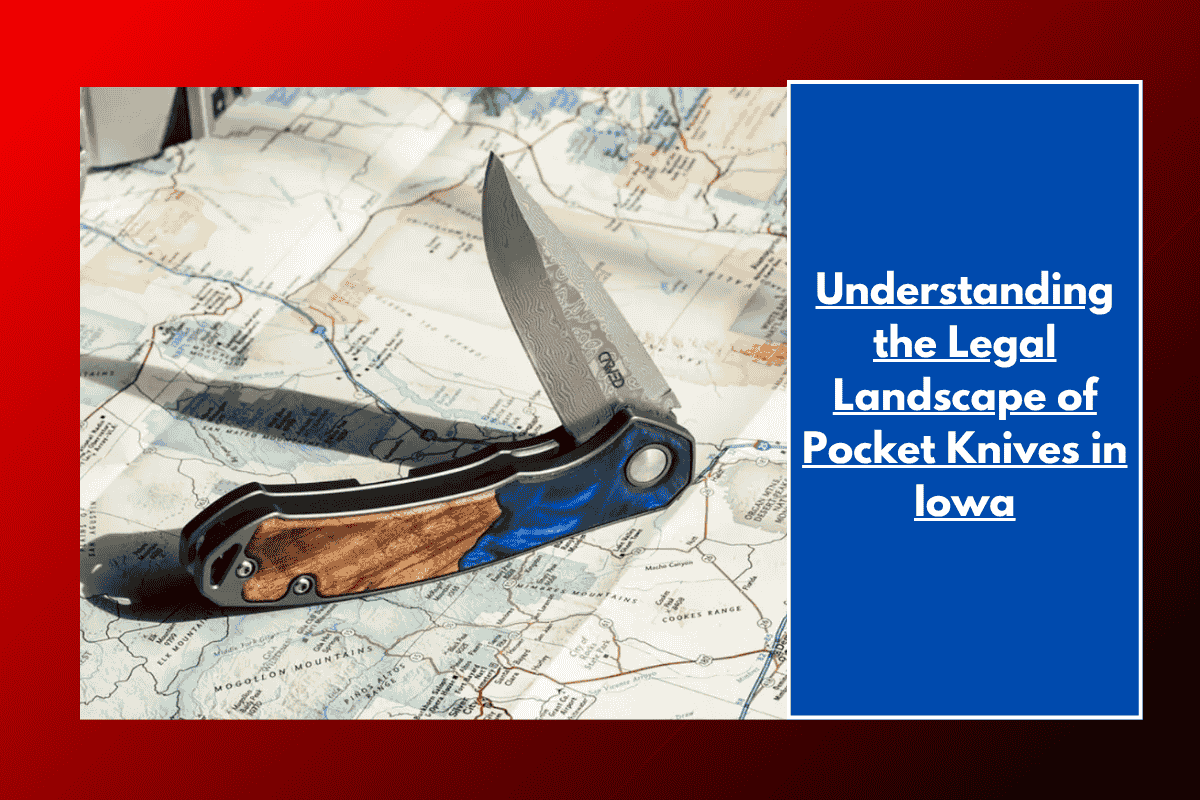Pocket knives are everyday tools that many people carry for practical purposes, such as opening packages, cutting rope, or for self-defense. However, like many weapons, the legal status of pocket knives can vary from state to state. If you’re in Iowa, it’s important to know the laws governing the possession, carrying, and use of pocket knives. Here’s a breakdown of what you need to understand about pocket knives in Iowa.
What Are Pocket Knives?
Pocket knives are small, folding knives designed to be easily carried in a pocket or bag. They often feature a blade that folds into the handle, making them compact and safe to carry. In general, they are used for everyday tasks, from cutting materials to general maintenance and outdoor activities.
Iowa Laws on Pocket Knives
In Iowa, the laws regarding pocket knives primarily revolve around the size of the blade, the purpose for which the knife is carried, and where the knife is being carried. While carrying a pocket knife is not illegal in Iowa, certain restrictions do apply.
1. Concealed Carry of Pocket Knives
In Iowa, it’s generally illegal to carry a concealed weapon without a permit. While pocket knives are not typically classified as dangerous weapons, they may be considered “concealed weapons” if carried in a hidden manner (for example, if the knife is kept in your pocket or concealed in a bag). To carry a concealed pocket knife legally, you would need a concealed carry permit for weapons, which includes both firearms and other weapons like knives.
2. Blade Length Restrictions
One of the key factors that can make a pocket knife illegal to carry is the length of the blade. Iowa law doesn’t explicitly set a maximum blade length for all knives, but many cities and counties within Iowa may have their own local ordinances that restrict blade length. Typically, knives with blades longer than 5 or 6 inches may be subject to more scrutiny. It’s important to check with local laws in your area to ensure that your pocket knife complies with local restrictions.
3. Carrying Pocket Knives in Certain Locations
Even if you legally carry a pocket knife in Iowa, there are some places where carrying any kind of weapon (including knives) is strictly prohibited. These include:
- Schools and school property
- Government buildings or courthouses
- Airports and federal facilities
It’s important to be aware of these restrictions before you decide to carry a pocket knife in certain public spaces.
4. Intent and Use of the Knife
Iowa law also considers the intent and purpose behind carrying a pocket knife. If the knife is being carried for self-defense or used in the commission of a crime, then it could lead to criminal charges. Possessing a knife with the intent to harm someone or using it in an altercation could lead to charges of assault or even attempted homicide, depending on the situation.
Self-Defense and Pocket Knives in Iowa
In Iowa, self-defense laws are similar to those in many other states. If you use a pocket knife to defend yourself, you must prove that the force was reasonable and necessary to prevent harm. Excessive use of force, or using the knife in an inappropriate situation, can result in legal consequences. It’s important to remember that just because you’re carrying a pocket knife doesn’t automatically justify its use in self-defense situations.
Penalties for Violating Knife Laws in Iowa
If you’re found carrying a prohibited knife, such as a concealed weapon without a permit or a knife with a blade length exceeding local ordinances, the penalties could range from fines to more serious charges. The severity of the penalties depends on the specific circumstances and the local jurisdiction’s laws.
Know the Laws to Stay Safe
While carrying a pocket knife in Iowa is generally legal, there are some restrictions and nuances that you need to be aware of. These include the need for a concealed carry permit if you want to carry a concealed knife, local blade length restrictions, and restrictions in certain locations. As with any weapon, it’s crucial to understand both state and local laws to avoid potential legal trouble.
If you’re ever uncertain about the legality of carrying a pocket knife in your specific area, it’s a good idea to consult with local law enforcement or legal professionals to ensure that you’re fully compliant with the law.
SOURCES
[1] https://knifeade.com/iowa-knife-law/
[2] https://nobliecustomknives.com/us-knife-laws/iowa-knife-laws/
[3] https://edc.ninja/iowa-knife-laws/
[4] https://www.akti.org/state-knife-laws/iowa/
[5] https://ravencresttactical.com/iowa-knife-laws/














